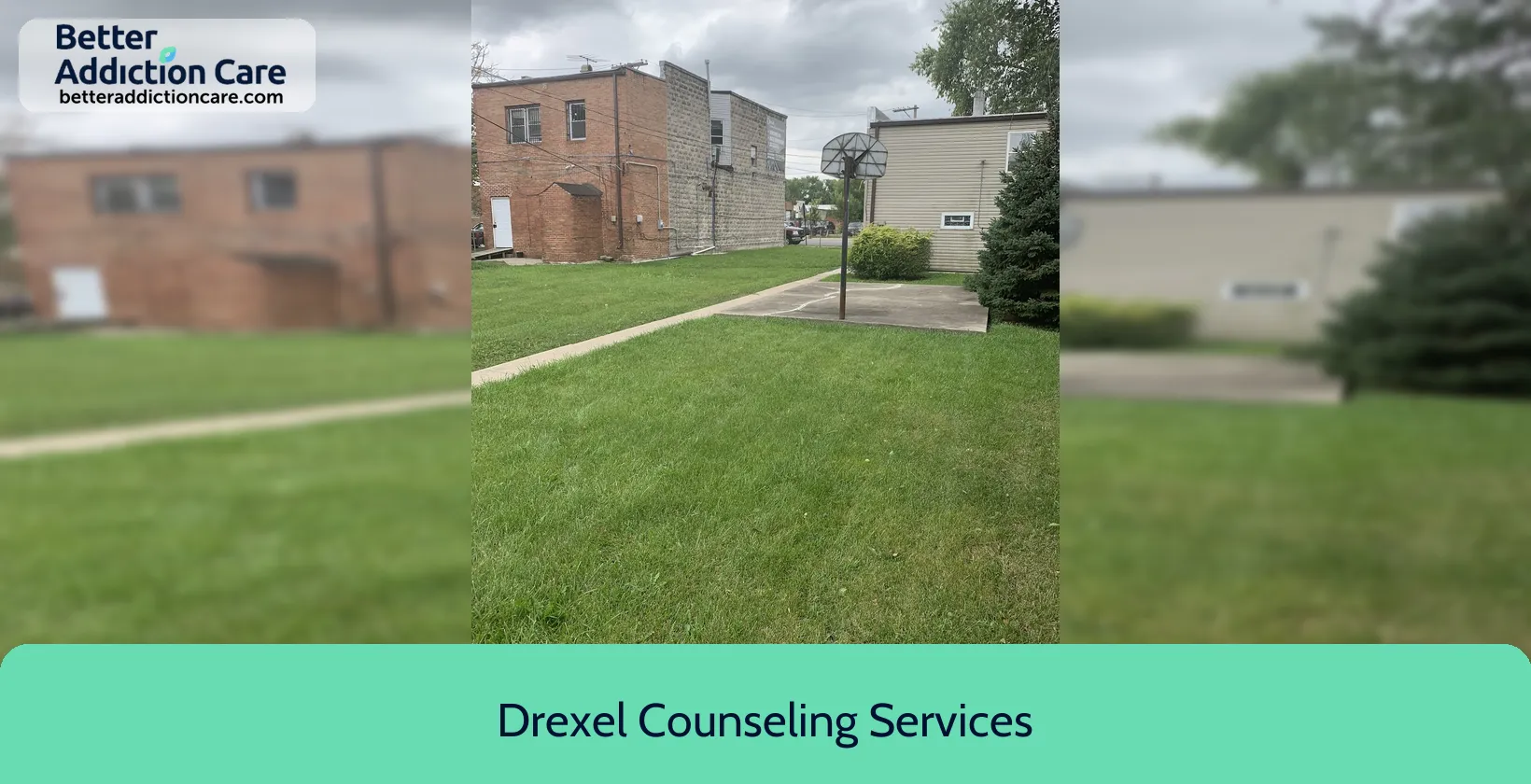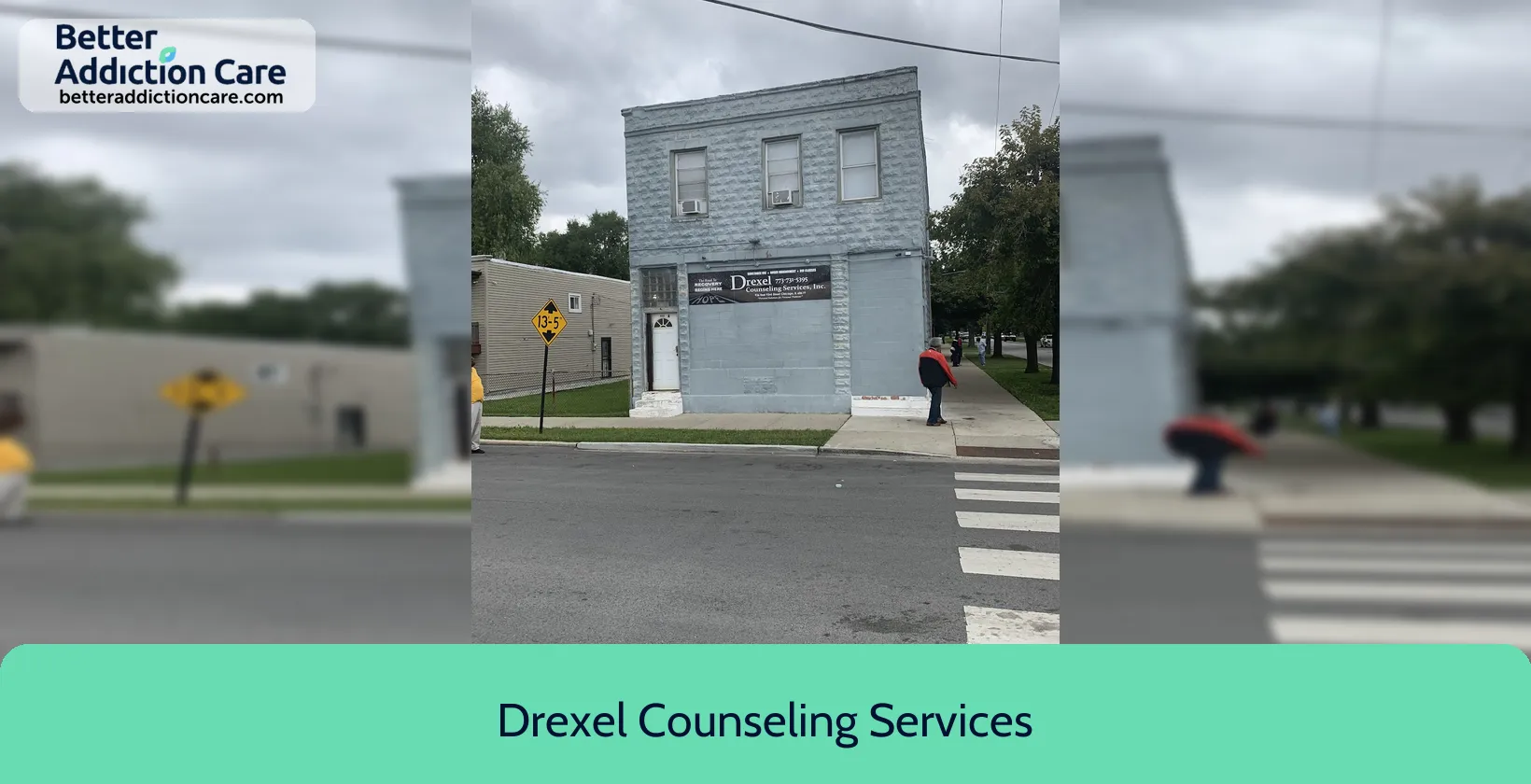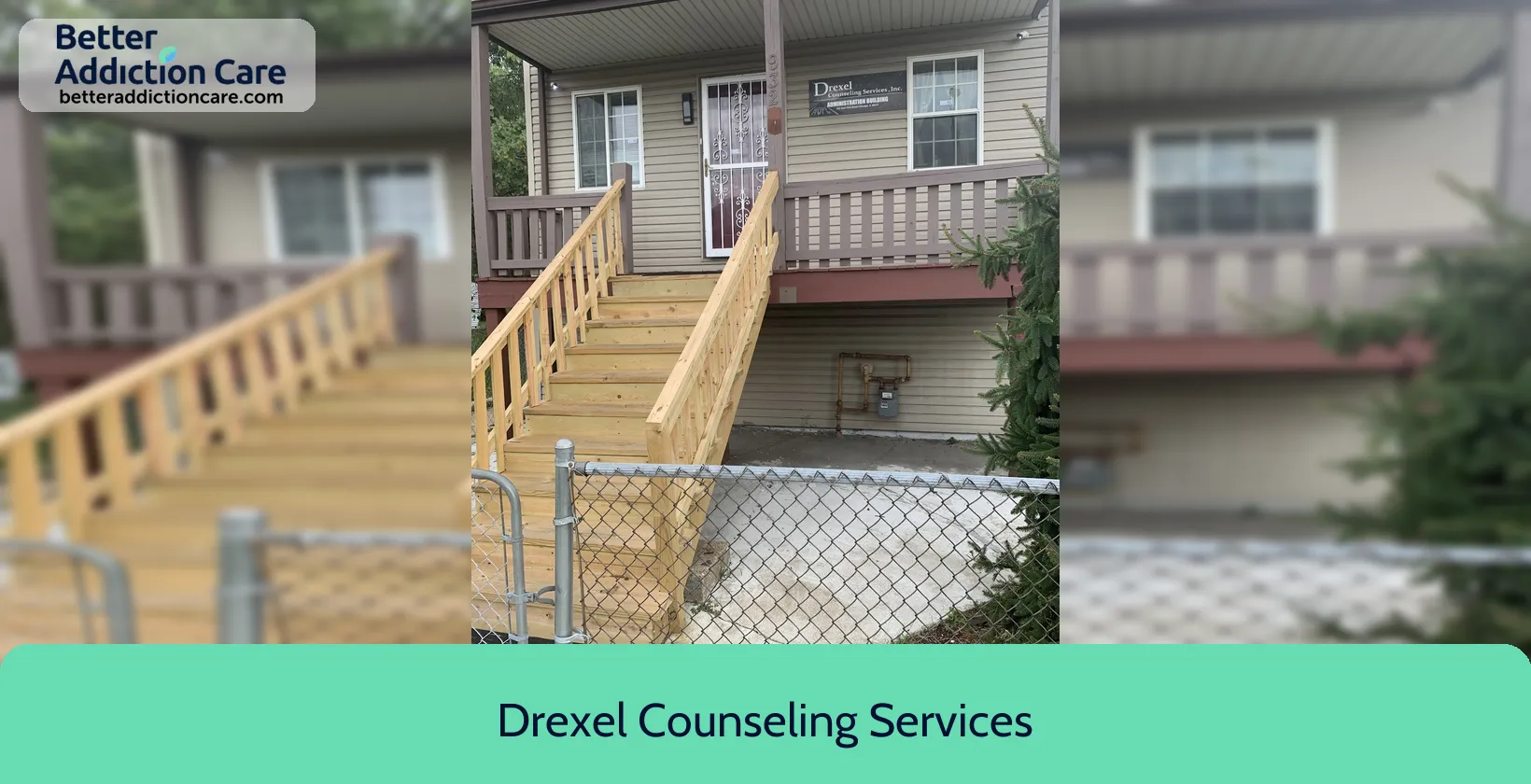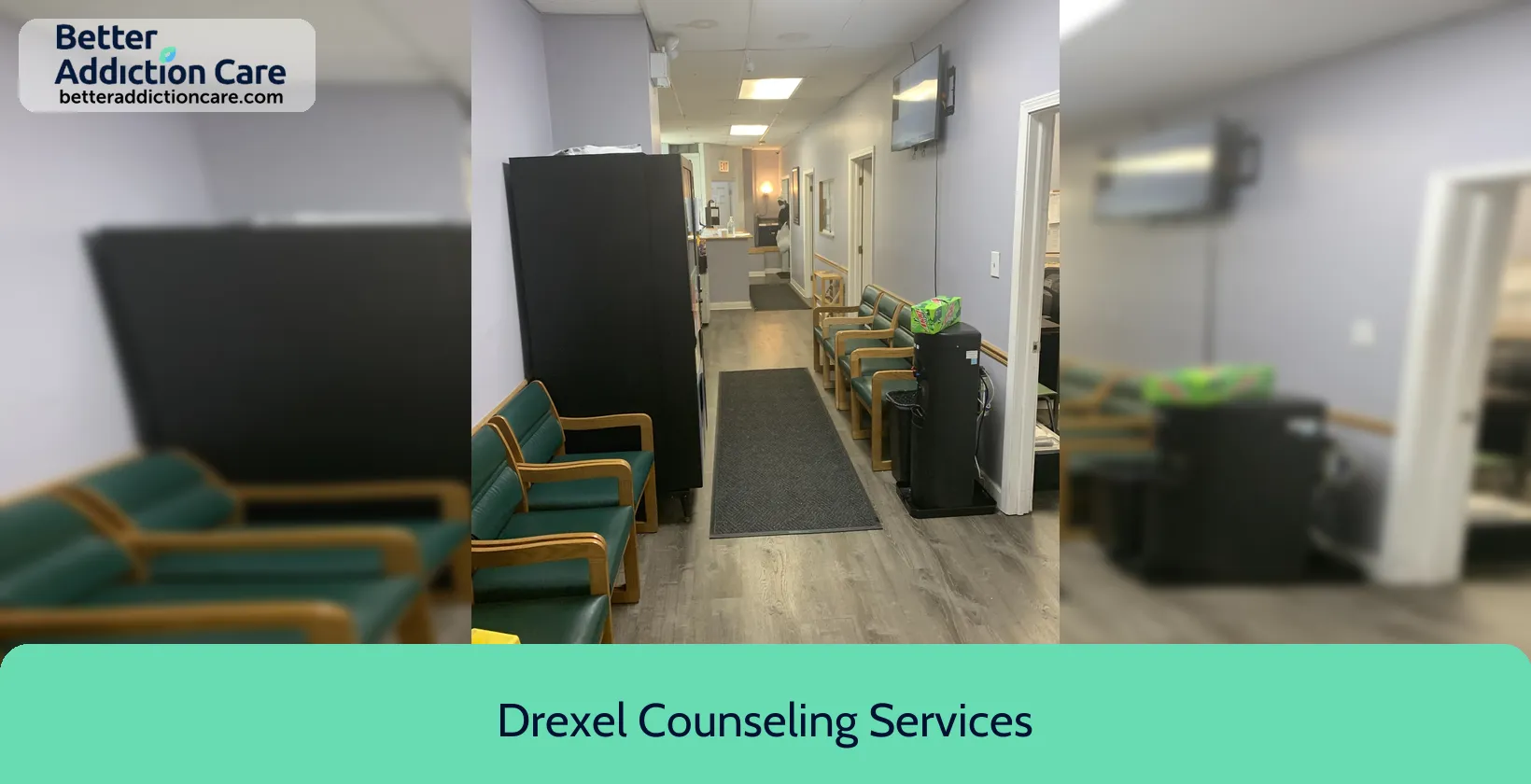Overview
Drexel Counseling Services is a substance abuse treatment center for people seeking treatment near Cook County. As part of their treatment modalities for recovery, Drexel Counseling Services provides cognitive behavioral therapy, telemedicine/telehealth therapy, and substance use disorder counseling during treatment. Drexel Counseling Services is located in Chicago, Illinois, accepting cash or self-payment for treatment.
Drexel Counseling Services at a Glance
Payment Options
- Cash or self-payment
- Medicaid
- Medicare
- State-financed health insurance plan other than Medicaid
- Private health insurance
Assessments
- Comprehensive substance use assessment
- Screening for substance use
- Complete medical history/physical exam
Age Groups
- Young adults
- Adults
Ancillary Services
- Case management service
- Specially designed program for DUI/DWI clients
- Domestic violence services, including family or partner
- Early intervention for HIV
- Transportation assistance
Highlights About Drexel Counseling Services
6.85/10
With an overall rating of 6.85/10, this facility has following balanced range of services. Alcohol Rehabilitation: 8.00/10, Drug Rehab and Detox: 6.31/10, Insurance and Payments: 6.00/10, Treatment Options: 7.09/10.-
Alcohol Rehabilitation 8.00
-
Treatment Options 7.09
-
Drug Rehab and Detox 6.31
-
Insurance and Payments 6.00
Accreditations
Commission on Accreditation of Rehabilitation Facilities (CARF):

CARF accreditation is a prestigious recognition for rehabilitation and human service organizations. It signifies that an organization meets high-quality standards and is committed to providing top-level care. CARF conducts rigorous evaluations to ensure compliance, enhancing an organization's credibility and reassuring clients and funders of exceptional service quality. This accreditation promotes excellence and continual improvement in the rehabilitation and human services field.
SAMHSA certification for opioid treatment program (OTP):
SAMHSA's Opioid Treatment Programs (OTPs) accreditation is a rigorous recognition process that signifies an OTP's commitment to providing high-quality care for individuals dealing with opioid use disorders. It assures patients, families, and the community that the program adheres to evidence-based practices, employs qualified staff, and maintains a safe treatment environment. This accreditation is a symbol of quality and accountability, offering confidence in the program's ability to support individuals on their path to recovery from opioid addiction.
Drug Enforcement Agency (DEA):
DEA accreditation refers to the process by which a law enforcement agency is recognized by the Drug Enforcement Agency (DEA) as having met specific training, operational, and resource requirements necessary to participate in DEA-led drug enforcement efforts. This accreditation allows the agency to perform DEA-related tasks such as conducting investigations, executing federal search warrants, and participating in joint task forces.
Treatment At Drexel Counseling Services
Treatment Conditions
- Alcoholism
- Substance use treatment
Care Levels
- Outpatient
- Outpatient methadone/buprenorphine or naltrexone treatment
- Intensive outpatient treatment
- Regular outpatient treatment
- Aftercare
Treatment Modalities
- Cognitive behavioral therapy
- Telemedicine/telehealth therapy
- Substance use disorder counseling
- Trauma-related counseling
- Group counseling
Ancillary Services
Additional Services
- Pharmacotherapies administered during treatment
- Discharge Planning
- Breathalyzer or blood alcohol testing
Special Programs
- Clients who have experienced trauma
Contact Information
Read our Most Recent Article About Drug Addiction
DISCLAIMER: The facility name, logo and brand are the property and registered trademarks of Drexel Counseling Services, and are being used for identification and informational purposes only. Use of these names, logos and brands shall not imply endorsement. BetterAddictionCare.com is not affiliated with or sponsored by Drexel Counseling Services.












